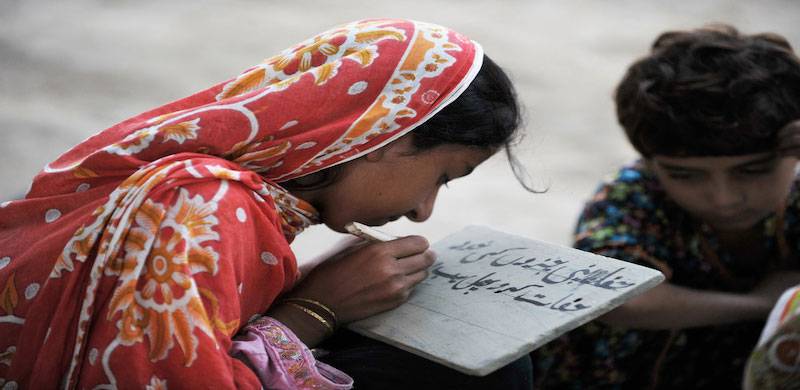
Since coming to power in 2018, the present government has displayed a renewed vigour for restoring Pakistan’s national pride – be it in the form of promoting our purported ‘cultural’ values or preserving our national language. PM Imran Khan is also often seen making comments about preserving these national attributes.
A notification issued on June 3 by the Prime Minister Office read: “The prime minister has been pleased to desire that henceforth all the programmes events/ceremonies, arranged for the prime minister, shall be conducted in the national (Urdu) language.
The language issue again came into the limelight after the implementation of the Single National Curriculum (SNC) by the Punjab government. Initially three subjects – Social Studies, General Knowledge, and Islamic Studies – are to be taught in Urdu at the primary level.
While measures promoting the national language are commendable, the government should move more swiftly in fulfilling its constitutional mandate.
Article 251 of the constitution recognises Urdu as the national language, and mandates government to make arrangements for it to be used for official and other purposes.
A 2015 Supreme Court judgment also ordered the government to implement Urdu as an official language. It had given three months to translate all federal and provincial legislation in Urdu.
Even though some progress was made initially, the order was not fully implemented once it got run over by other pressing issues.
However, It was not the first time that the country’s top court had mandated the use of Urdu as an official language. Since the creation of Pakistan, similar orders have been passed by the top court multiple times.
If the government is serious about elevating Urdu’s status as a national language, it should start with fully implementing Supreme Court’s 2015 order. Unless something like that is done by the government, a mere change of language on book covers would not make much of a difference.
A notification issued on June 3 by the Prime Minister Office read: “The prime minister has been pleased to desire that henceforth all the programmes events/ceremonies, arranged for the prime minister, shall be conducted in the national (Urdu) language.
The language issue again came into the limelight after the implementation of the Single National Curriculum (SNC) by the Punjab government. Initially three subjects – Social Studies, General Knowledge, and Islamic Studies – are to be taught in Urdu at the primary level.
While measures promoting the national language are commendable, the government should move more swiftly in fulfilling its constitutional mandate.
Article 251 of the constitution recognises Urdu as the national language, and mandates government to make arrangements for it to be used for official and other purposes.
A 2015 Supreme Court judgment also ordered the government to implement Urdu as an official language. It had given three months to translate all federal and provincial legislation in Urdu.
Even though some progress was made initially, the order was not fully implemented once it got run over by other pressing issues.
However, It was not the first time that the country’s top court had mandated the use of Urdu as an official language. Since the creation of Pakistan, similar orders have been passed by the top court multiple times.
If the government is serious about elevating Urdu’s status as a national language, it should start with fully implementing Supreme Court’s 2015 order. Unless something like that is done by the government, a mere change of language on book covers would not make much of a difference.
